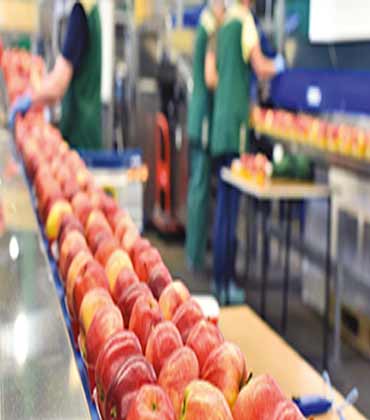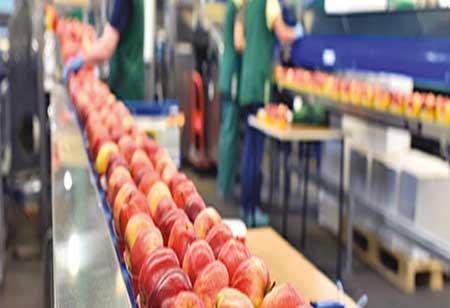THANK YOU FOR SUBSCRIBING
By Aldo Volpi, Culinary Director, Ismaya Group
Serving Trust with Culinary Innovation and Food Safety
By Linda Cudjoe, Head of Food Safety and Technical, Harrods
Impact of Artificial Intelligence and Big Data on the...
By Robert Erhard, Head of Dairy, Corporate Sustainable Agricultural Development, Nestle
Transforming the Food Industry Through a Sustainable...

Embracing Collaboration, Leadership, and Mentorship in FMCG Industry
Kritika Gadi, Quality Assurance Area Manager, Creative Food Solutions, Andrews Meat Industries Pty Ltd

 Kritika Gadi, Quality Assurance Area Manager, Creative Food Solutions, Andrews Meat Industries Pty Ltd
Kritika Gadi, Quality Assurance Area Manager, Creative Food Solutions, Andrews Meat Industries Pty LtdThe food industry is a fast-paced, ever-changing ecosystem comprising of agriculture, manufacturing, logistics, retail, hospitality, and technology. As we respond to shifting global needs, more stringent food safety regulations, increased demand for healthier and more sustainable alternatives, the role of collaboration, leadership and mentorship in this industry is beyond critical. These are the three fundamental pillars that enable innovation, food security, quality and trust throughout the entire supply chain.
Why Collaboration is Important?
More so than most sectors, the food industry is powered by connection. An array of key players —farmers, food producers, distributors, chefs, retailers, auditors and consumers—are involved in bringing the food from farm to fork together. Not only this, the interdepartmental collaboration in each of the individual sectors across operations, planning, production, warehouse and quality assurance is critical in delivering safe food to customers plate. All of this makes it so complex that a hiccup at any point can affect the entire process. Hence, collaboration is not optional here; it is mandatory!
Why Strong Leadership is Important?
Strong leadership is also crucial for navigating the complexities of supply chains, regulatory hurdles, and the array of new technologies. Innovative leaders encourage innovation, defend organisations and create an accountability culture that has a tremendous impact on the entire food industry.
Why Mentoring is Crucial?
Mentorship is crucial to nurturing budding talent - especially in an industry that can be largely inherited, where knowledge is often gleaned from hands-on experience and passed down. Mentors are there to guide, shape budding careers and help young professionals navigate the challenges of operations, customer-facing work and encourage creativity. In FMCG, taking on a mentor preserves traditions while stimulating imaginative exploration and accelerating professional development. If Leadership cuts the path, it is mentorship prepares for the future.
“Collaboration, leadership, and mentorship are the three fundamental pillars that enable innovation, food security, quality, and trust throughout the entire supply chain”
On a macro level, business mentors help bridge associated pitfalls with funding, compliance and scaling in a challenging market space. They help improve diversity and inclusivity through open and difficult discussions and by providing opportunities for new talent.
Conclusion:
It is only when collaboration, leadership and mentorship are in complete synchronisation, the food industry thrives and is high performing. Together, is the basis of success; strong leadership leads the way and motivates, while good mentoring cares for succession and growth. These all serve to nurture dynamic, forward-thinking and enduring food manufacturers.
It is these human-centred dynamics that will lead the way as we come to grips with the tremendous challenges we face in feeding a growing global population, grappling with climate change and the rapid scaling of machine intelligence. By embracing collaboration, empowering passionate leadership and engaging in mentorship, the food industry has the opportunity to promote not only the health of individuals but also the mental well-being of communities and a better economy around the world.
In such a fast-paced FMCG environment, it is impossible to succeed on your own. Whether you’re an aspiring chef, farmer, food professional, or entrepreneur, the way forward is forged together alongside the right people who advise, coach and work with you all along. Only together, we can build a brighter food future.
Read Also














